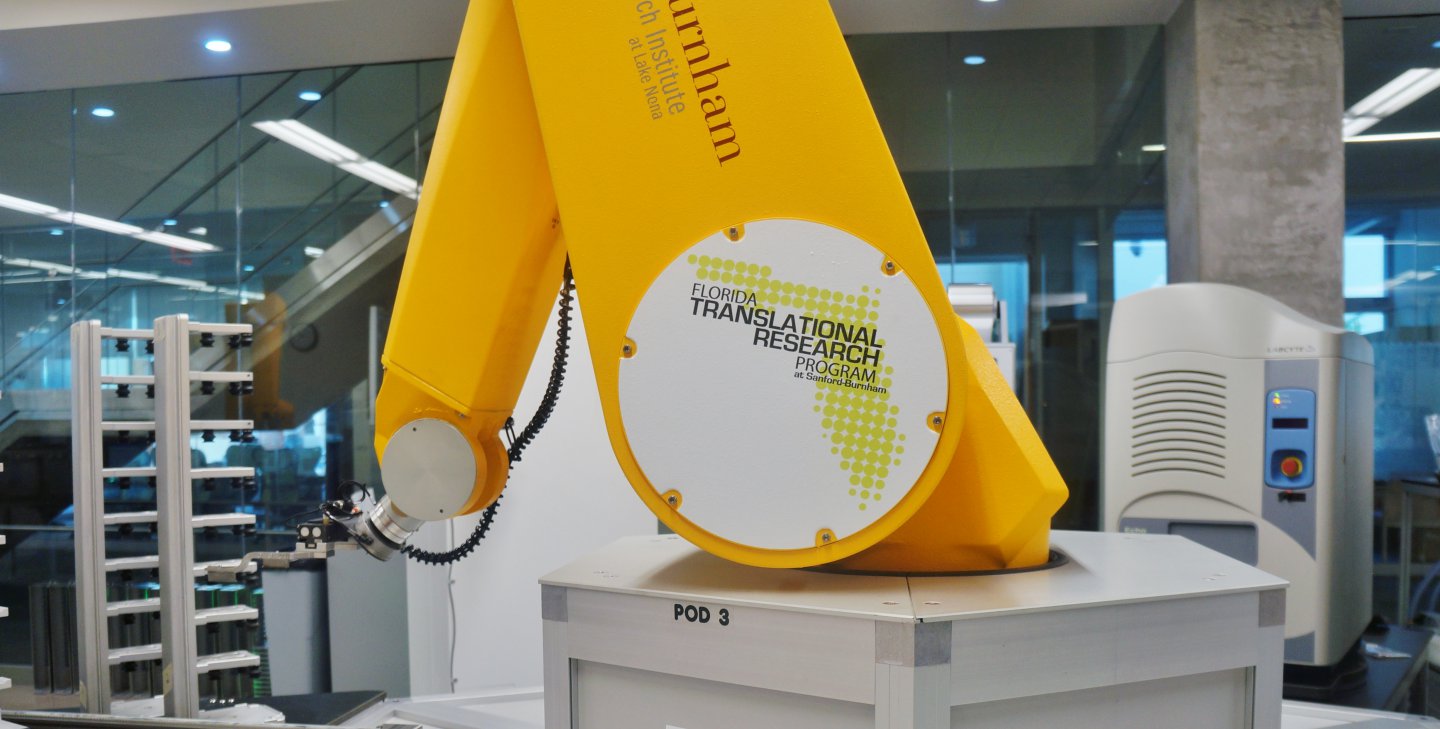Reinstatement of Florida Translational Research Program (FTRP) funding has provided scientists at Florida universities and medical research institutes with renewed access to the world-class drug discovery technology housed within Sanford Burnham Prebys Medical Discovery Institute at Lake Nona (SBP). The FTRP offers investigators the chance to work with drug discovery experts to translate their research advances into potential new medicines. The facility’s high-tech resources, including high-throughput robotics that screen tens of thousands of chemical compounds per day, combined with expert advice from faculty that have decades of experience in the pharmaceutical industry, make for powerful collaborations that benefit the statewide life science industry.
Funded by the state of Florida and administered by SBP, the program’s most recent call for proposals netted 16 projects—some new and some ongoing—from all Florida universities with biomedical research programs, including the University of Florida, Florida State, Florida International University, University of Central Florida, University of South Florida and University of Miami, as well as the Mayo Clinic and Moffitt Cancer Center.
All projects focus on major unmet medical needs: aggressive cancers, Alzheimer’s, diabetes, heart disease and drug-resistant infections. While some teams are testing drug libraries to find compounds with desired properties, others are refining active compounds for potency and specificity. The collaborations aim to identify drug candidates with clinical benefits such as reducing tumor size, halting aggressive breast cancer metastasis, reducing inflammation in diseased brains or treating antibiotic-resistant pathogens.
“Our intent is to replicate success stories like that of Pamela McLean, associate professor of neuroscience at the Mayo Clinic,” says Layton Smith, PhD, director of drug discovery at SBP’s Lake Nona campus. “The initial results from her FTRP project led to her receiving the biggest grant ever awarded by the Michael J. Fox Foundation. Similarly, our work with Kirk Conrad, professor of physiology at the University of Florida on a potential heart failure drug has attracted the interest of a major pharmaceutical company.”
“Our approach to collaborative drug discovery has brought more research funding to the state,” adds Smith. “But more important, our work may lead to new therapeutics that reduce the burden of disease around the world.”

